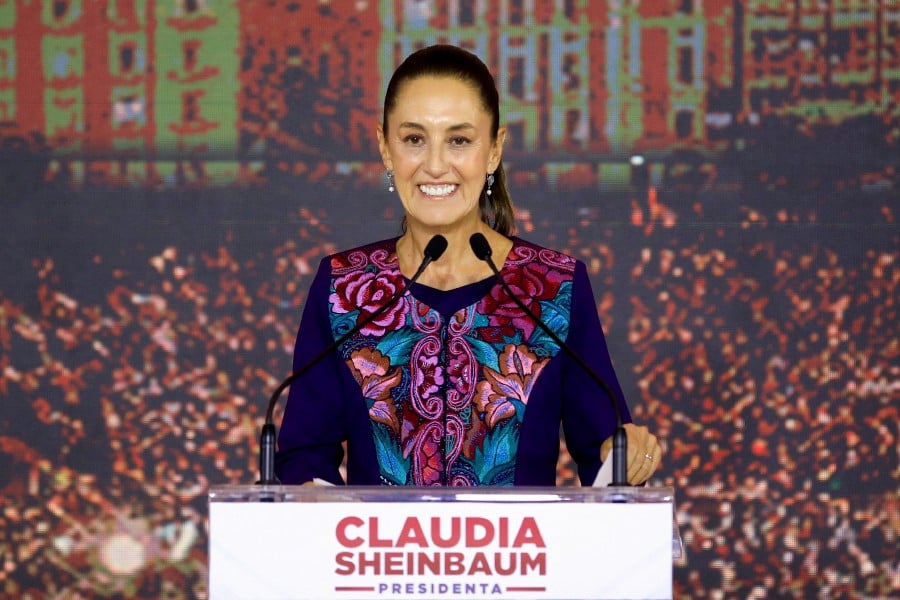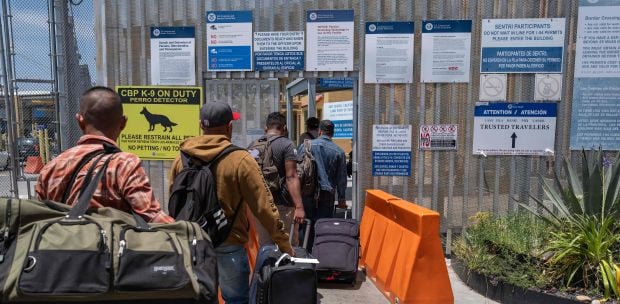Mexico's President-elect Claudia Sheinbaum, an accomplished climate scientist, could struggle to fulfil her environmental pledges after she sailed to victory, in part, on the popularity of a predecessor who doubled down on fossil fuels.
Sheinbaum, elected as Mexico's first woman president by a sweeping margin on Sunday, inherits a country grappling daily with climate change and environmental challenges: pervasive drought, a water crisis in the sprawling capital of Mexico City, and rampant deforestation.
The 61-year-old leftist leader, who was part of a United Nations panel of climate scientists that received a Nobel Peace Prize in 2007, has spoken about her belief in an academic and scientific approach to politics.
She campaigned on a pledge to significantly boost renewable energy in the oil-producing country to as much as 50 per cent by the end of her term in 2030.
But despite her best intentions to improve Mexico's green record, Sheinbaum's mentor, the highly popular outgoing President Andres Manuel Lopez Obrador, spent billions propping up Mexico's fossil fuel-dependent state energy giants, oil firm Pemex and power utility CFE.
Her overwhelming victory, and the possible congressional super majority won by the ruling coalition, is in many ways a referendum on Lopez Obrador's policies and initiatives, said Mariana Campero, senior associate with the CSIS Americas Programme.
Sheinbaum could be hard-pressed to break cadence with Lopez Obrador's style at the risk of losing support, limiting her ability to prioritise climate change policies.
"She has said that she will continue with his policies and that her government will be a continuation of his government," said Campero.
"But she has always said that green energy is important. So how will she square that circle?"
Sheinbaum has credited her upbringing by a chemical engineer father and cellular biologist mother for fostering her interest in science and politics.
She has a doctorate in energy engineering from the National Autonomous University of Mexico.
As mayor of Mexico City, she installed a rooftop solar project at a busy central market and inaugurated a 100 per cent electric bus line.
But she faced criticism for some projects, including the construction of a bridge in the Xochimilco ecological zone that community members said damaged wetlands.
She supports some of Lopez Obrador's most controversial projects, including the Mayan Train, a tourist railway that activists and scientists decry for endangering pristine wilderness and ancient cave systems beneath the jungle floor.
Still, her rise to the presidency has fuelled hope among some that she could turn things around for the country's track record on climate change policies, which deteriorated under Lopez Obra-dor, according to the Climate Change Performance Index, largely due to increased subsidies for fossil fuels and poor progress in curbing deforestation.
"I think she has that will and intention to put Mexico back on net-zero targets and in the good graces of the international community," Arthur Deakin, director of energy at consultancy America's Market Intelligence.
Sheinbaum has pledged to boost wind and solar energy as part of a US$13.57 billion investment in new energy generation projects.
She is, however, also facing the biggest budget deficit in decades, left behind by Lopez Obrador, a reality that will force her to pick and choose how to dedicate spending.
Despite being the world's most indebted energy company, Pemex is still a major contributor to state coffers, said Alejandra Lopez, a public policy consultant who specialises in energy issues.
The firm is a heavy emitter of greenhouse gases, but it is also an important national symbol of energy sovereignty for many Mexicans, including Lopez Obrador.
Pemex stirs a sense of "emotional, historical and sentimental" importance in the country, Lopez said.
Sheinbaum is a vocal believer in the role of the state in Mexico's energy sector, long dominated by Pemex, which could make it tough to keep her promise to increase renewable energy.
A business-savvy approach could enable her to attract investment and spur realistic change towards decarbonising the energy and transportation sectors, Deakin said.
Sheinbaum could start by increasing the limit for distributed generation projects, typically small privately-funded solar or wind farms that are built to supply energy to a specific factory or industrial site.
* The writer is from Reuters





